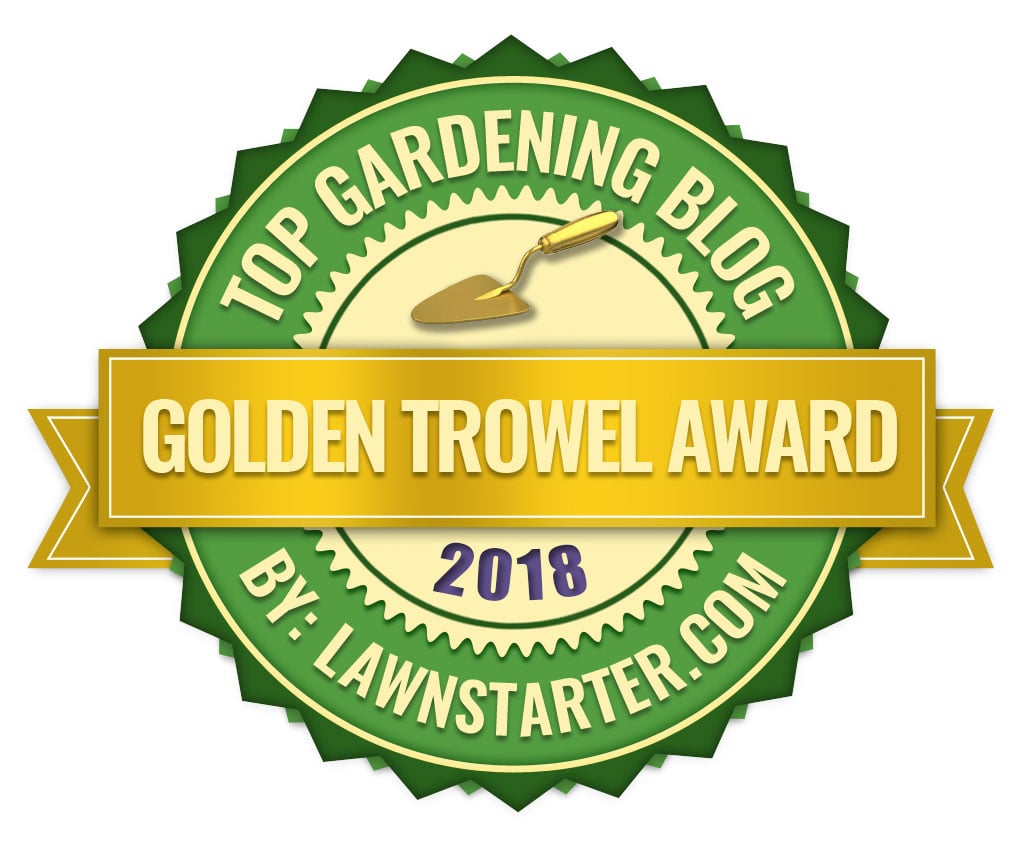Most people think the exercise thing first. While I know exercise is good for you, it is definitely not on my top ten things to do.
I will agree with the, "I like to watch things grow, create my own food and make a prettier place to live" group.
Then there is the, I just like being outside in the fresh air. I actually get depressed if I am stuck inside for too long. Anybody that has ever gardened knows this feeling.
Well, now there is some scientific proof that we gardeners are not crazy! Well, never mind that last sentence, most of us are. There is some interesting scientific news that might be able to give us more reasons to be outside. Yea, that is better!
Getting your hands dirty and making contact with soil AND a specific soil bacteria, Mycobacterium vaccae, triggers the release of serotonin in our brain according to research. Serotonin is a happy chemical, a natural anti-depressant and it strengthens the immune system. Lack of serotonin in the brain causes depression.
It all came about when a Mary O’Brien, an oncologist at Royal Marsden Hospital in London, started inoculating cancer patients with a strain of the soil bacteria to see if any of their symptoms improved. Not only did they improve, they seemed happier and even their cognitive functions got better.
After hearing about this, Dr. Chris Lowry, at Bristol University, decided to go another step and wanted to see if the body’s immune response to the bacterium was what causes the brain to produce seratonin.
His experiments were done on mice. He found that cytokine levels rose, cytokines are part of a chain reaction, the end result of which is the release of seratonin.
There is much more testing going on. It has even been surmised that Seratonin is also thought to play a role in learning. Does it make sense now why so many of our older generations, think farmers, were so smart?
Something else to think about. Some researchers have proposed that the sharp rise in asthma and allergy cases over the past century stems, unexpectedly, from living too clean. I am going to borrow a sentence from a blogger in Australia that put it EXACTLY how I have been trying to say this to people for years: "In our hyper-hygienic, germicidal, protective clothing, obsessive health-and-safety society, there’s been a lot of interesting research emerging in recent years regarding how good dirt is for us, and dirt-deficiency in childhood is implicated in contributing to quite a spectrum of illnesses including allergies, asthma and mental disorders".
I could really get on my high horse and blame the hand sanitizing craziness that I see, but I will let you think about it for yourself. I am in my late 40's, so if you are the same age, or older, think back to your childhood. Do you remember as many peanut allergies, asthma, and other respiratory problems as you see now? I sure don't!!
This is a little different of an article than I usually write and I am going to go way off track here for a minute. I AM all about education and this has something to do with the lack of it. I love the idea of research going on to get people more outdoors, maybe they will see some health benefits from it eventually. But, I am also scared of what kind of people we are bringing up today, due to the LACK of gardening skills. There are children that think that milk comes from "Publix" and have no idea that it first came from a cow. There are people that have no idea how to plant a seed and get a crop from it.
I am an advocate for having some kind of gardening class or classes taught in school. Get them started early, teach them that a peanut does NOT grow on a tree and that Coco Puffs are made from a grain, that grows in the ground.
My mother taught me gardening when I was very young. I helped her in her garden and had a little one myself, probably by the age of 6. Comparatively, I feel I am a better, healthier person because of this. Let's get these kids off of FarmTown on the computer and into real farms. They will all be happier, healthier, and better able to adapt to the real world.
Thank You for following my little rant, we will resume next time with some good gardening information. As usual, if you have any questions or comments about any of my writings, please feel free to ask.
Happy growing!
Darren
Mary
O’Brien, an oncologist at Royal Marsden Hospital in London, first
stumbled upon these findings while inoculating lung cancer patients with
a strain of M. vaccae (pronounced “emm vah-kay”) to see if their
symptoms improved. She noticed that in addition to fewer cancer
symptoms, patients also demonstrated an improvement in emotional health,
vitality, and even cognitive function. - See more at:
http://www.hortmag.com/blogs/gardening-blog/dirt-can-make-you-happy#sthash.R5GEzJqg.dpuf
Mary
O’Brien, an oncologist at Royal Marsden Hospital in London, first
stumbled upon these findings while inoculating lung cancer patients with
a strain of M. vaccae (pronounced “emm vah-kay”) to see if their
symptoms improved. She noticed that in addition to fewer cancer
symptoms, patients also demonstrated an improvement in emotional health,
vitality, and even cognitive function. - See more at:
http://www.hortmag.com/blogs/gardening-blog/dirt-can-make-you-happy#sthash.R5GEzJqg.dpuf
Mary
O’Brien, an oncologist at Royal Marsden Hospital in London, first
stumbled upon these findings while inoculating lung cancer patients with
a strain of M. vaccae (pronounced “emm vah-kay”) to see if their
symptoms improved. She noticed that in addition to fewer cancer
symptoms, patients also demonstrated an improvement in emotional health,
vitality, and even cognitive function. - See more at:
http://www.hortmag.com/blogs/gardening-blog/dirt-can-make-you-happy#sthash.R5GEzJqg.dpuf











